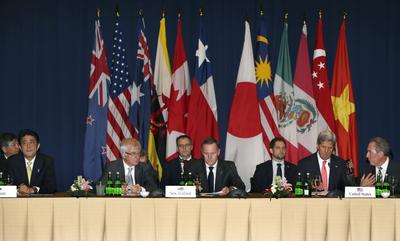TPP draft reveals surgical strike on public health

Alexandra Phelan & Matthew Rimmer, East Asia Forum
On 13 November, WikiLeaks released a secret draft text of the Intellectual Property Chapter of the Trans-Pacific Partnership (TPP). The text reveals substantive proposals for expanded protection in respect of copyright, patent, trade mark and trade secrets law, and intellectual property enforcement.
Across this, there is much cause for concern. In particular, the IP Chapter poses worrying challenges for patient care, access to medicines, and public health across the Pacific Rim. As WikiLeaks Editor-in-Chief Julian Assange warned, ‘[i]f you’re ill now or might one day be ill, the TPP has you in its crosshairs’.
With the drafting notes intact in the leaked TPP draft, the text reveals a fierce battle amongst the Pacific Rim nations over patent law, public health, and the objectives and the principles behind the TPP’s IP Chapter.
New Zealand, Canada, Singapore, Chile, Malaysia and Vietnam have proposed thatthe agreement should ‘support each Party’s right to protect public health, including by facilitating timely access to affordable medicines’. As an additional clause, New Zealand, Canada, Singapore, Chile and Malaysia have proposed the agreement should recognise that countries can ‘adopt measures necessary to protect public health and nutrition’.
The US and Japan opposed such recognition of the importance of public health in the agreement’s objectives, with Peru, Brunei Darussalam and Mexico withdrawing their names from the proposal to include public health in the TPP objectives. In contrast, Australia has reserved its position on the scope of the objectives — a disappointing stance given that Australian leaders have publicly emphasised the importance of public health measures, such as access to medicines and the plain packaging of tobacco products.
The TPP contains a raft of measures designed to boost the position of patent holders in the fields of pharmaceutical drugs, medicine and biotechnology.
The US has proposed a broad approach to patent law — demanding that plants, animals and medical procedures be subject to patent protection by Pacific Rim members. This could result, particularly for medical procedures, in greater patent litigation against doctors, surgeons and medical professionals.
In addition, the US has argued for extensions of the patent term in respect of pharmaceutical drugs, including extensions where there have been regulatory delays — something which could result in skyrocketing healthcare prices. A review of pharmaceutical drug patents in Australia, for example, found that patent term extensions were exceedingly expensive in Australia.
There has also been concern about the problem of patent ‘ever greening’ — that the TPP will impose low patent standards ‘likely to lead to a proliferation of secondary patents being granted … preventing fair competition for long periods’. This would be an undesirable outcome, creating excessive opportunities for the extension of monopoly protections.

